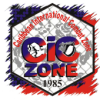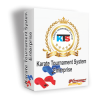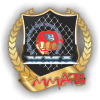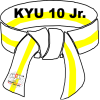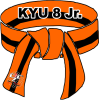Wire EDM (Electrical Discharge Machining) can produce a wide range of surface finishes, from relatively rough to mirror-like, depending on a variety of factors. This is a detailed breakdown:
Factors affecting surface finish:
Wire diameter: Thinner wires typically produce finer finishes, but they are limited in terms of material removal rates and cut depths.
Pulse settings: The peak current, pulse duration, and pulse on time have a direct impact on the rate of material removal and the size of the craters left on the surface. Lower peak currents and pulse durations produce smoother finishes.
Wire feed rate: Faster wire feed rates produce rougher surfaces because the wire spends less time at each point, resulting in larger craters.
Flushing conditions: Proper flushing with a dielectric fluid is essential for removing debris and preventing excessive heat buildup, which can contribute to a rougher finish.
Material properties: The material being cut also plays a part. Harder materials typically require higher peak currents and longer pulse durations, which can result in a rougher finish.
Achievable surface finish ranges:
Rough: This range usually falls between 25 and 50 Ra (micro inches) and is appropriate for applications where surface finish is not critical.
Medium: This range is between 10 and 25 Ra and is commonly used for functional parts that require some degree of smoothness.
Fine: This range runs from 5 to 10 Ra and is used for parts that require a smooth surface finish for functionality or aesthetics.
Superfine: Wire EDM can achieve a smooth finish of 1-5 Ra, making it ideal for highly polished parts or those with tight tolerances.
While wire EDM can produce extremely smooth finishes, it is important to remember that the process involves melting and vaporizing the material. This results in a thin, resolidified layer called the recast layer on the surface, which may be slightly rougher than the underlying material. Achieving a superfine finish frequently necessitates multiple passes and specialized techniques, which can significantly extend machining time and cost. Polishing or honing may be necessary for critical applications that require extremely smooth surfaces. Wire EDM uses an electrically charged electrode, usually made of graphite or copper, that plunges into the workpiece like a stamp. You might want to learn more about wire EDM, including the differences between wire EDM and Die-Sinking EDM(https://www.jtrmachine.com/what-are-the-differences-between-wire-edm-and-die-sinking-edm)....
Sign Up
Your Martial Arts Social Media helps you connect and share with the people in your life.
Technology
What Is the Purpose of Serological Pipettes?
Serological pipettes are versatile tools used extensively in various scientific and medical settings for accurate measurement and transfer of liquids. Here's a detailed breakdown of their uses:
1. Measuring precise volumes
Preparation of solutions and dilutions: When precise concentrations are required, serological pipettes are used to measure specific volumes of stock solutions and create diluted solutions for experiments or assays.
Dispensing specific amounts of reagents: In many applications, such as cell cultures, specific volumes of reagents such as media or buffers are required. Serological pipettes ensure precise dispensing of these reagents.
Quantitative analysis: Analytical techniques such as spectrophotometry and ELISA require precise measurements of samples and reagents. Serological pipettes help to achieve accurate results by providing precise volume control.
2. Transferring various liquids
Transferring cell cultures and biological samples: These delicate samples frequently necessitate gentle handling and precise volume control. Serological pipettes, equipped with sterile tips, make it possible to transfer these samples safely and accurately.
Adding/removing liquids from tubes and containers: Serological pipettes provide precise volume transfer and control when adding media to cell cultures, removing supernatant after centrifugation, or transferring samples between containers.
Layering liquids with different densities: Certain procedures require layering liquids of varying densities. Serological pipettes' controlled flow and accuracy allow for this process to be carried out without disturbing the layers.
3. Other specific applications
Blood sampling: Certain blood tests necessitate collecting specific volumes of blood for analysis. Serological pipettes with anticoagulant-coated tips are suitable for this purpose.
DNA/RNA extraction and purification: These processes frequently involve transferring small volumes of solution between steps. Serological pipettes provide precise volume control in these applications.
It's crucial to remember that proper technique is essential for accurate and safe use of serological pipettes. Following manufacturer instructions, using appropriate tips, and adopting correct handling practices are vital to ensure accurate results and avoid contamination risks. And there is something else you need to know about serological pipettes such as how to use them(https://www.cqscopelab.com/how-do-i-use-a-serological-pipette)....
Topics:
.
Securing Your Premises: The Importance of CCTV Installation by Evolve Electrical and Technology
by Maria Dave
As a business owner or homeowner in Auckland, safeguarding your property is a top priority. In an ever-changing world, where security threats loom large, investing in robust surveillance solutions is essential. Enter Evolve Electrical and Technology, your trusted partner for CCTV installation in Auckland.
Gone are the days of relying solely on traditional security measures. With Evolve Electrical and Technology's CCTV installation services, you can take control of your security like never before. Their team of experts understands the unique needs of both commercial and residential spaces, offering tailored solutions to meet your specific requirements.
From strategic camera placement to seamless integration with existing systems, they ensures comprehensive coverage of your premises. Whether you're deterring potential intruders or monitoring activity in real-time, their state-of-the-art CCTV systems provide peace of mind round the clock.
What sets Evolve Electrical and Technology apart is their commitment to quality and reliability. With over 20 years of experience in the industry, they deliver top-notch solutions backed by unparalleled expertise. From initial consultation to installation and maintenance, their team is with you every step of the way.
Don't leave the security of your property to chance. Partner with Evolve Electrical and Technology for expert CCTV installation services and protect what matters most to you....
Is Powder Coating Eco-Friendly?
by jin
Powder coating is generally considered a safer option for the environment than traditional liquid paints for a number of reasons.
No VOCs (Volatile Organic Compounds): Powder coatings, unlike liquid paints, are solvent-free. This means that they emit few, if any, harmful fumes or pollutants during the application process, thereby improving air quality and lowering the risk of respiratory problems for both workers and the environment.
Reduced Overspray: The electrostatic application process in powder coating ensures that nearly all of the powder adheres to the object being coated. This reduces overspray, which can pollute the environment and generate hazardous waste.
Minimal Waste Generation: Powder coating generates significantly less waste than liquid paint. Any unused powder can be easily recycled and reused, thereby reducing environmental impact.
Recycled Materials: Many powder coatings are made from recycled materials, such as post-consumer plastic or metal scrap, which reduces reliance on virgin resources and promotes a more sustainable manufacturing process.
Durable and Long-lastingowder coatings are highly resistant to chipping, scratching, and fading. This means that they require fewer reapplications over their lifespan, lowering their overall environmental impact when compared to less durable finishes.
Increased Energy Efficiency: Powder coatings require lower curing temperatures than liquid paints, resulting in lower energy consumption during application.
Pre-treatment Chemicals: Pre-treatment chemicals used in powder coating may contain harmful substances. Choosing eco-friendly pre-treatment options can help to reduce the environmental impact even further.
Waste Disposal: The powder coating process produces minimal waste, but it must be properly disposed of. It is critical to choose facilities that practice responsible waste management.
End-of-Life Considerations: When it comes to disposing of powder-coated objects, it's important to recycle or responsibly dispose of them.
For more information, please click:https://www.jtrmachine.com/powder-coating...
Topics:
.
How Do I Choose the Right Color for Powder Coating?
by jin
Choosing the right color for powder coating can be exciting, but with so many options, it can also be daunting! To help you narrow down your options and choose the perfect shade, here are some key factors to consider:
1. Project Purpose and Function
What do you powder coat? Is it a piece of furniture, an appliance, outdoor equipment, or anything else? Consider the item's function and how the color affects its use. Select a color that will stand up to the intended use and environment. Consider using darker or more neutral colors in high-traffic areas or outdoor pieces to better hide wear and tear.
2. Aesthetics and Style
What emotion do you want the color to evoke? Do you want it to be bold and attention-grabbing, or calm and serene? Consider the overall design of your space or the object. If you're powder coating something that will be part of a larger space, think about how the color will complement the existing color scheme. You can use a complementary, contrasting, or neutral color to tie everything together. Finally, the color you choose should be one that makes you happy. Don't be afraid to try different shades and finishes until you find something you like.
3. Technical Considerations
Different gloss levels can have a significant impact on the appearance and feel of a color. Matte finishes can be more understated and contemporary, whereas high-gloss finishes can be more dramatic and striking. Choose a gloss level that complements the overall look you want. Some powder coatings have textured finishes or special effects, such as metallic flecks or a pearlescent sheen. These can improve the visual appeal and dimension of your project, but they are also more expensive. Consider how the color will appear under different lighting conditions. Natural light can reveal the true hues of a color, whereas artificial light can cast shadows and alter its appearance. Before making a final decision, view color samples in various lighting conditions.
For more information,please click:https://www.jtrmachine.com/powder-coating...
Topics:
.
Is It Possible to Machine Or Weld Anodized Aluminum?
by jin
Yes, machining and welding anodized aluminum are possible but require careful consideration and specific techniques due to the properties of the anodized layer. Here's a breakdown:
Machining
Challenges: Cutting tools can be rapidly worn down by the hard oxide layer, necessitating regular replacements or specialized tools. Additionally, machining can harm the anodized finish in the machined area, detracting from its protective and esthetic properties.
Tips: Reduce tool wear and enhance finish quality by using slow cutting speeds, sharp tools, and appropriate lubrication.
Alternative: For improved control and strength, machine the aluminum before anodizing.
Welding
Challenges: If the insulating oxide layer is left in place, it will hinder adequate metal-to-metal contact and result in weak welds. Burning through the layer can also change the properties of the aluminum.
Preparation: Grinding, sanding, or chemical stripping are the necessary methods for removing the anodized layer from the welding area.
Methods: The precision and control of TIG welding make it the preferred method. There are particular uses for laser welding as well.
Alternative: If at all possible, weld the aluminum before anodizing; if not, take into account press-fitting, adhesives, and rivets as alternate joining techniques.
For more information,please click:https://www.jtrmachine.com/anodizing...
Topics:
.
What Are the Advantages and Disadvantages of the Rockwell Hardness Tester?
Advantages of the Rockwell Hardness Tester
Fast and easy to use: The Rockwell Hardness Test is a very simple and quick procedure, which makes it perfect for quality control and production settings.
Wide range of applications: You can test a wide range of materials with the Rockwell Hardness Tester, including plastics, certain ceramics, and ferrous and non-ferrous metals.
High accuracy: Particularly for materials having a Rockwell Hardness Number (HR) between 20 and 100, the Rockwell Hardness Test is renowned for its great accuracy.
Relatively inexpensive: Generally speaking, Rockwell Hardness Testers are less costly than Vickers or Knoop hardness testing techniques.
Portable options available: There are multiple portable models that make testing convenient in both field and laboratory settings.
Durable and reliable: Rockwell Hardness Most testers are designed to be dependable and strong, requiring little upkeep.
Standardized testing method: With ASTM and ISO standardizing the test, reliable and consistent results are guaranteed for the Rockwell Hardness Test.
Disadvantages of the Rockwell Hardness Tester
Limited to harder materials: Material that is extremely soft or extremely hard should not be tested using the Rockwell Hardness Test. Soft materials can be harmed by the indenter, but very hard materials can cause it to break or distort.
Destructive test: For certain applications, it may not be desirable that the Rockwell Hardness Test permanently indentations the test specimen.
Not suitable for curved surfaces: With curved surfaces, the indenter cannot make complete contact, which causes readings to be off.
Limited depth of penetration: The Rockwell Hardness Tester's limited indentation size may hinder its applicability for thick or layered materials.
Operator dependence: The accuracy of the Rockwell Hardness Test can be influenced by operator technique, despite its relative simplicity. Experience and appropriate training are essential.
Requires calibration: To guarantee accurate results, Rockwell Hardness Testers require routine calibration, just like any other measurement tool.
Conclusion
For determining the hardness of a variety of materials, the Rockwell Hardness Tester is an invaluable instrument. Because of its benefits, which include accuracy, speed, and ease of use, it can be used in a variety of settings. However, when selecting the appropriate testing method, one should take into account its limitations regarding material compatibility, destructiveness, and suitability for particular surface geometries.For more information,please click:https://www.cqscopelab.com/rockwell-hardness-tester...
Topics:
Hardness Tester
Unleash the Power of Ultra-Wideband with the NYSD Series Mini UWB DML Laser Module
by doralee
The NYSD Series Mini UWB DML Laser Module from NEON is a revolutionary product poised to transform industries reliant on high-speed, precise data transmission. This compact module packs a powerful punch, delivering unparalleled performance in an ultra-miniature package.
Unmatched Capabilities:
High-Dynamic-Range: The NYSD Series boasts an impressive dynamic range, allowing it to operate seamlessly in diverse environments and applications. This ensures consistent, reliable performance regardless of noise levels or signal fluctuations.
18 GHz Bandwidth: Experience the blazing-fast speed of 18 GHz bandwidth, ideal for demanding applications requiring real-time data transmission without compromising on quality. This opens doors for cutting-edge advancements in areas like LiDAR, 5G communication, and high-speed data networks.
Low Threshold Current: The laser operates with an exceptionally low threshold current, leading to reduced power consumption and increased efficiency. This translates to longer operating times, decreased heat generation, and a more environmentally friendly solution.
High Output Power: The NYSD Series delivers high output power, ensuring a strong signal that travels further and penetrates deeper. This is crucial for applications where long-distance communication or transmission through challenging environments is essential.
Compact Design: The module's incredibly small size makes it ideal for integration into space-constrained systems. This opens up possibilities for miniaturized devices and innovative product designs.
7-pin Butterfly Package with SMA Connector: The user-friendly package simplifies integration and reduces installation time. The included SMA connector provides a robust and reliable connection for optimal signal integrity.
Unlocking a World of Possibilities:
The NYSD Series Mini UWB DML Laser Module has the potential to revolutionize various industries:
LiDAR: Drive the next generation of LiDAR systems with high-precision distance measurement and object detection capabilities.
5G Communication: Enable ultra-fast, reliable data transmission for next-level mobile networking and internet connectivity.
High-Speed Data Networks: Create robust and efficient data networks capable of handling ever-increasing data demands.
Medical Imaging: Enhance medical imaging techniques with high-resolution and accurate image capture.
Security and Surveillance: Implement advanced security and surveillance systems with exceptional accuracy and long-distance detection.
Invest in the Future:
The NYSD Series Mini UWB DML Laser Module is a game-changer for industries demanding high-performance, miniature solutions. With its cutting-edge technology and compact design, this module paves the way for innovative advancements across diverse fields. If you are looking to stay ahead of the curve and unlock a world of possibilities, the NYSD Series is the perfect solution for you.
Contact NEON today to learn more about how the NYSD Series Mini UWB DML Laser Module can help you achieve your goals....
Topics:
UWB DML LASER
Accurately Measure Altitude with Confidence: The DS-HES Aircraft Radio Altimeter Simulator
by doralee
In the critical world of aviation, precise altitude measurement is essential for safe and efficient flight. The DS-HES Aircraft Radio Altimeter Simulator from NEON provides a reliable and versatile solution for training pilots and technicians, verifying instrument accuracy, and ensuring the smooth operation of aircraft systems.
Unparalleled accuracy and reliability
The DS-HES simulator utilizes a state-of-the-art photoelectric delay system, offering unmatched accuracy in generating realistic altitude data. This system replicates the actual behavior of radio altimeters, ensuring that users receive the most authentic training experience possible.
Comprehensive functionality for diverse applications
The DS-HES simulator boasts a range of features designed to cater to a variety of needs. Whether you're training pilots in landing procedures, testing radio altimeter performance, or researching new technologies, this simulator has the capabilities you need.
Key features:
Simulates various radio altimeter types: Compatible with most standard radio altimeters, ensuring a wider range of applications.
Programmable altitude profiles: Create custom scenarios to simulate real-world flight conditions and explore different situations.
Real-time data visualization: Monitor altitude readings, signal strength, and other important parameters in real-time.
Flexible connectivity options: Connect to various avionics systems and training platforms for seamless integration.
Compact and portable design: Easily transported and set up, ideal for mobile training environments.
Benefits that go beyond accuracy:
Reduced costs: Eliminate the need for expensive flight time for altitude-related training.
Enhanced safety: Train pilots in a controlled environment without the risks of actual flight.
Improved efficiency: Streamline radio altimeter testing and maintenance procedures.
Advanced research and development: Conduct realistic simulations to develop and test new technologies.
Confidence in every flight
The DS-HES Aircraft Radio Altimeter Simulator is an essential tool for any organization seeking to enhance its aviation operations. With its unparalleled accuracy, comprehensive functionality, and range of benefits, this simulator helps ensure confidence, safety, and efficiency in every flight.
Contact NEON today to learn more about the DS-HES Aircraft Radio Altimeter Simulator and how it can benefit your operations....
Topics:
altimeter simulator
What Are the Best Practices for Pipetting Small Volumes?
To ensure accuracy and precision when pipetting small volumes, proper technique and equipment use are essential. The following are recommended procedures for pipetting tiny volumes:
Use the correct pipette: Select a pipette made especially for pipetting tiny amounts of liquid. Compared to pipettes made for higher volumes, these pipettes have finer graduations and smaller plunger sizes.
Use low-retention pipette tips: When pipetting small volumes, it is important to minimize liquid retention, which is why low-retention pipette tips are specially designed to do just that. Usually composed of a different kind of polypropylene, these tips are lubricated with silicone to lower surface tension and keep liquid from sticking to the inside of the tip.
Pre-wet the pipette tip: Reduce liquid retention and increase accuracy by pre-wetting the pipette tip with a small amount of the liquid you plan to pipette. This is particularly crucial for liquids that are sticky or viscous.
Use a slow pipetting speed: When dispensing small volumes, use the pipette slowly. This will lessen the possibility of air bubbles forming by allowing the liquid more time to flow into and out of the tip.
Pause before dispensing: As you aspirate the liquid, give it a brief moment of rest before dispensing. This will guarantee that you are dispensing the right amount by allowing the liquid to settle in the tip.
Dispense at an angle: One should dispense the liquid at a 45-degree angle to the vessel's surface. By doing this, you can lessen the chance that the liquid will drip or fall off the side of the container.
Touch the pipette tip to the side of the vessel: To eliminate any leftover liquid, touch the pipette tip to the vessel's side after dispensing the liquid. By doing this, you can be sure that the right amount is being dispensed.
Change pipette tips frequently: Often replace pipette tips, particularly when pipetting small volumes. This is due to the possibility that minute liquid particles may stick to the inside of the tip, impairing the precision of later pipetting.
Calibrate your pipette: Make sure your pipette is dispensing the right amount of liquid by calibrating it on a regular basis. This is particularly crucial for pipetting tiny volumes.
Practice proper technique: Use the right pipetting technique to guarantee accurate and consistent outcomes. This entails using a proper pipette grip, applying constant pressure to the plunger, and avoiding jerky motions.
You can increase the precision and accuracy of pipetting small volumes by adhering to these best practices, which will guarantee consistent and repeatable outcomes in your laboratory tests. For more information, please click:https://www.cqscopelab.com/pipette-tips...
Topics:
pipette tip
Trending Topics
Top Bloggers

 Add New Blog
Add New Blog
